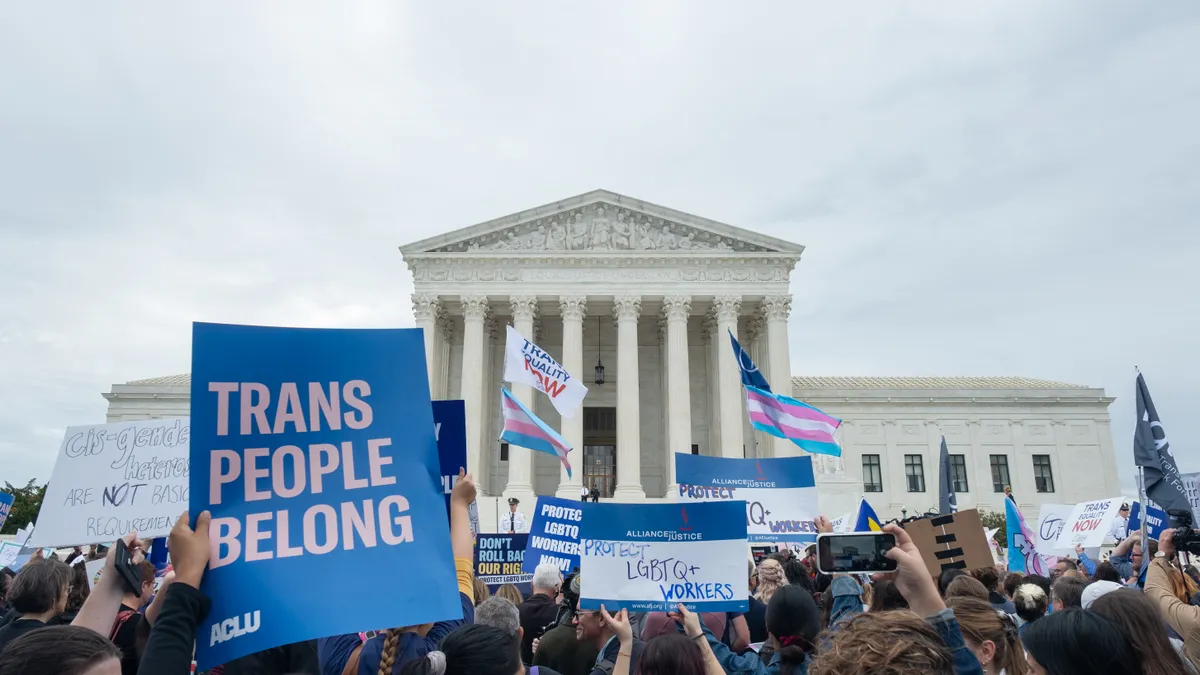Dive Brief:
-
The Biden administration asked the Supreme Court on Monday to allow the U.S. Department of Education to enforce parts of its controversial new Title IX rule in locales where court orders have temporarily blocked the entire regulation.
-
In a pair of filings, U.S. Solicitor General Elizabeth Prelogar asked the court to review the preliminary injunctions arising from cases in Louisiana and Tennessee after both the 5th and 6th Circuit denied the Biden administration's request to allow portions of the rule to take effect. The preliminary injunctions impact 10 conservative states that sued the department over its rule protecting LGBTQI+ students.
-
The district courts' orders blocking the entire rule rather than just the parts under litigation are too broad and would "block the [Education] Department from implementing dozens of provisions of an important Rule effectuating Title IX, a vital civil rights law protecting millions of students against sex discrimination," the solicitor general's application said.
Dive Insight:
In the past few weeks, the department's three-month-old rule has been dealt multiple blows in federal district courts just prior to its Aug. 1 implementation date. So far, the entire rule has been temporarily blocked in 15 states after they challenged the rule's LGTBQI+ protections.
And when the department attempted to move the remaining parts of the rule forward in those states, federal judges have repeatedly denied its requests.
Last week, Kansas District Court Judge John Broomes suggested in his decision rejecting the department's stay request that the challenges to enforcement were of the department's own making. Broomes said the Education Department "maybe" should delay its Aug. 1 enforcement date on its own to avoid a patchwork of Title IX policies nationwide.
However, Prelogar told the Supreme Court on Monday that the lower courts' decisions were "a blunderbuss approach to preliminary relief" that is "both wrong and consequential."
Prelogar said she foresees the provisions protecting LGBTQ+ students being litigated on appeal and that the issue "may well require" the Supreme Court's input in the end.
She said the Education Department, however, is not asking the federal court system to urgently address those controversial parts of the rule. Rather, it seeks to implement other parts of the rule at this time.
















